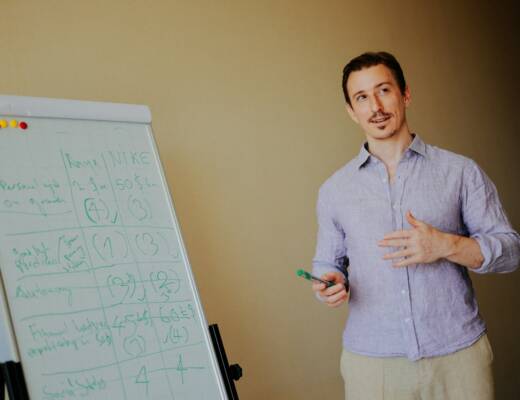Growing up as a gymnast, I was conditioned to believe in a simple equation: winning equals success, and anything less equals failure. This black-and-white mindset shaped my early career and drove me to push beyond my limits. While it fueled my ambition, it also created unnecessary pressure and pain that I carry to this day.
Looking back at my gymnastics journey, I wish I could tell my younger self that gold medals and perfect scores don’t always measure success. The true measure of success lies in growth, resilience, and lessons learned.
The Pressure of Perfectionism
The gymnastics world is notorious for its emphasis on perfection. Every pointed toe, every stuck landing, and every fraction of a point matters. This environment taught me that if I didn’t reach my goal, win the competition, or stand at the top of the podium, I had failed—period.
This mindset pushed me to excel, but at what cost? The disappointment I felt when falling short of my goals was crushing, even when my performance was objectively excellent. It was amazing. I was a great gymnast. But in my mind, it wasn’t good enough if I wasn’t the best.
Every thing you do is an opportunity to learn and grow and get better. Sometimes we have to lose and not be the best to really figure things out in life.
View this post on Instagram
Learning Through Loss
Now, with the perspective that comes after competitive athletics, I understand that some of my most significant growth came from moments I once considered failures. Those competitions where I fell short taught me more than many victories.
When we don’t win, we’re forced to examine what happened. We analyze, adjust, and approach problems differently. This process builds character and develops skills that extend far beyond sports:
- Resilience in the face of disappointment
- Humility and the ability to learn from others
- Mental toughness and emotional regulation
- The capacity to find value in the journey, not just the destination
- Adaptability when things don’t go as planned
These qualities have served me well throughout my career and personal life, often more than the discipline and determination that came from my successes.
A New Definition of Success
Since finishing my gymnastics career, I’ve completely redefined what success means to me. It’s no longer about being better than everyone else or achieving some external validation. Success is about personal growth, meaningful connections, and making a positive impact.
This shift in perspective has been liberating. I can appreciate my accomplishments without the crushing weight of perfectionism. I can celebrate progress rather than demanding perfection. Most importantly, I can find joy in the process rather than fixating solely on outcomes.
That’s not to say goals aren’t important. They give us direction and purpose. But attaching our entire self-worth to achieving those goals creates unnecessary suffering. We can strive for excellence while appreciating the value in every step of our journey.
Advice to My Younger Self
If I could go back and talk to that young gymnast who beat herself up over every imperfection, I’d tell her this: You are more than your achievements. Scores or medals don’t determine your worth. The discipline and drive you’re developing will serve you well, but don’t let them blind you to the beauty of the journey.
I’d tell her that someday, you’ll look back and realize that some of your “failures” were actually redirecting you toward a better path. The resilience you build through disappointment will become one of your greatest strengths.
Most of all, I’d tell her she is already enough, a medal or no medal.
This perspective doesn’t diminish the value of hard work or ambition. Instead, it places them in a healthier context. We can pursue greatness without tying our self-worth to external outcomes. We can celebrate victories without letting them define us. And we can learn from setbacks without labeling them as failures.
The next time you face disappointment or fall short of a goal, remember that this moment isn’t defining you—it’s developing you. Success isn’t always about winning. Sometimes, it’s about growing, learning, and becoming a better version of yourself.
Frequently Asked Questions
Q: How can I stop equating my worth with my achievements?
Start by recognizing your inherent value as a person separate from what you accomplish. Practice self-compassion when you don’t meet goals, and celebrate qualities beyond your achievements—like kindness, creativity, or resilience. Gradually shift your focus from outcomes to personal growth and the positive impact you have on others.
Q: Does redefining success mean lowering my standards?
Not at all. Redefining success means expanding your definition beyond just winning or external validation. You can maintain high standards while also valuing the process, personal growth, and lessons learned along the way. This broader perspective actually allows for more sustainable excellence rather than the burnout that often comes with perfectionism.
Q: How do competitive athletes balance striving for excellence with maintaining perspective?
The key is separating performance from self-worth. Athletes can pursue excellence through disciplined training and competitive drive while still recognizing that their value as a person doesn’t change based on results. Creating identities outside of sports, working with sports psychologists, and having supportive relationships that aren’t solely focused on athletic achievement can help maintain this balance.
Q: What are some practical ways to find value in “failures”?
After a disappointment, ask yourself: “What can I learn from this experience?” Identify specific skills to improve, strategies to adjust, or insights about yourself. Look for unexpected opportunities that emerged from the setback. Document your growth over time to see how past challenges contributed to your development. Sharing your experience might also help others facing similar situations.
Q: How long does shifting from a winning-focused mindset to a growth-focused one take?
This transformation is typically gradual rather than immediate. For many former athletes, the shift begins during career transitions and continues to evolve with life experience. Be patient with yourself—deeply ingrained mindsets developed over years of competitive training take time to reframe. Small daily practices of self-compassion and celebrating non-achievement-based successes will gradually reshape your perspective.







